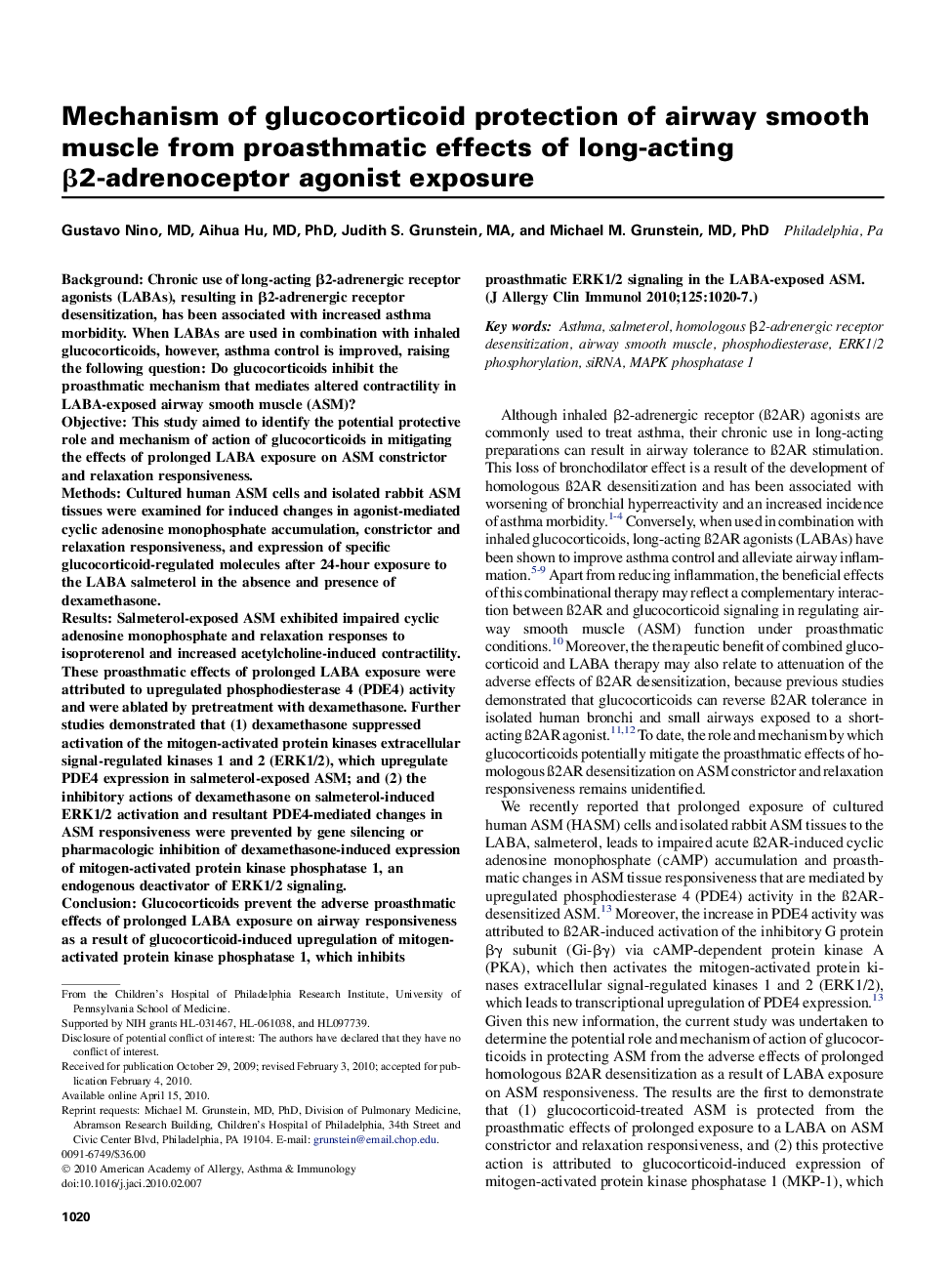| Article ID | Journal | Published Year | Pages | File Type |
|---|---|---|---|---|
| 3200809 | Journal of Allergy and Clinical Immunology | 2010 | 8 Pages |
BackgroundChronic use of long-acting β2-adrenergic receptor agonists (LABAs), resulting in β2-adrenergic receptor desensitization, has been associated with increased asthma morbidity. When LABAs are used in combination with inhaled glucocorticoids, however, asthma control is improved, raising the following question: Do glucocorticoids inhibit the proasthmatic mechanism that mediates altered contractility in LABA-exposed airway smooth muscle (ASM)?ObjectiveThis study aimed to identify the potential protective role and mechanism of action of glucocorticoids in mitigating the effects of prolonged LABA exposure on ASM constrictor and relaxation responsiveness.MethodsCultured human ASM cells and isolated rabbit ASM tissues were examined for induced changes in agonist-mediated cyclic adenosine monophosphate accumulation, constrictor and relaxation responsiveness, and expression of specific glucocorticoid-regulated molecules after 24-hour exposure to the LABA salmeterol in the absence and presence of dexamethasone.ResultsSalmeterol-exposed ASM exhibited impaired cyclic adenosine monophosphate and relaxation responses to isoproterenol and increased acetylcholine-induced contractility. These proasthmatic effects of prolonged LABA exposure were attributed to upregulated phosphodiesterase 4 (PDE4) activity and were ablated by pretreatment with dexamethasone. Further studies demonstrated that (1) dexamethasone suppressed activation of the mitogen-activated protein kinases extracellular signal-regulated kinases 1 and 2 (ERK1/2), which upregulate PDE4 expression in salmeterol-exposed ASM; and (2) the inhibitory actions of dexamethasone on salmeterol-induced ERK1/2 activation and resultant PDE4-mediated changes in ASM responsiveness were prevented by gene silencing or pharmacologic inhibition of dexamethasone-induced expression of mitogen-activated protein kinase phosphatase 1, an endogenous deactivator of ERK1/2 signaling.ConclusionGlucocorticoids prevent the adverse proasthmatic effects of prolonged LABA exposure on airway responsiveness as a result of glucocorticoid-induced upregulation of mitogen-activated protein kinase phosphatase 1, which inhibits proasthmatic ERK1/2 signaling in the LABA-exposed ASM.
